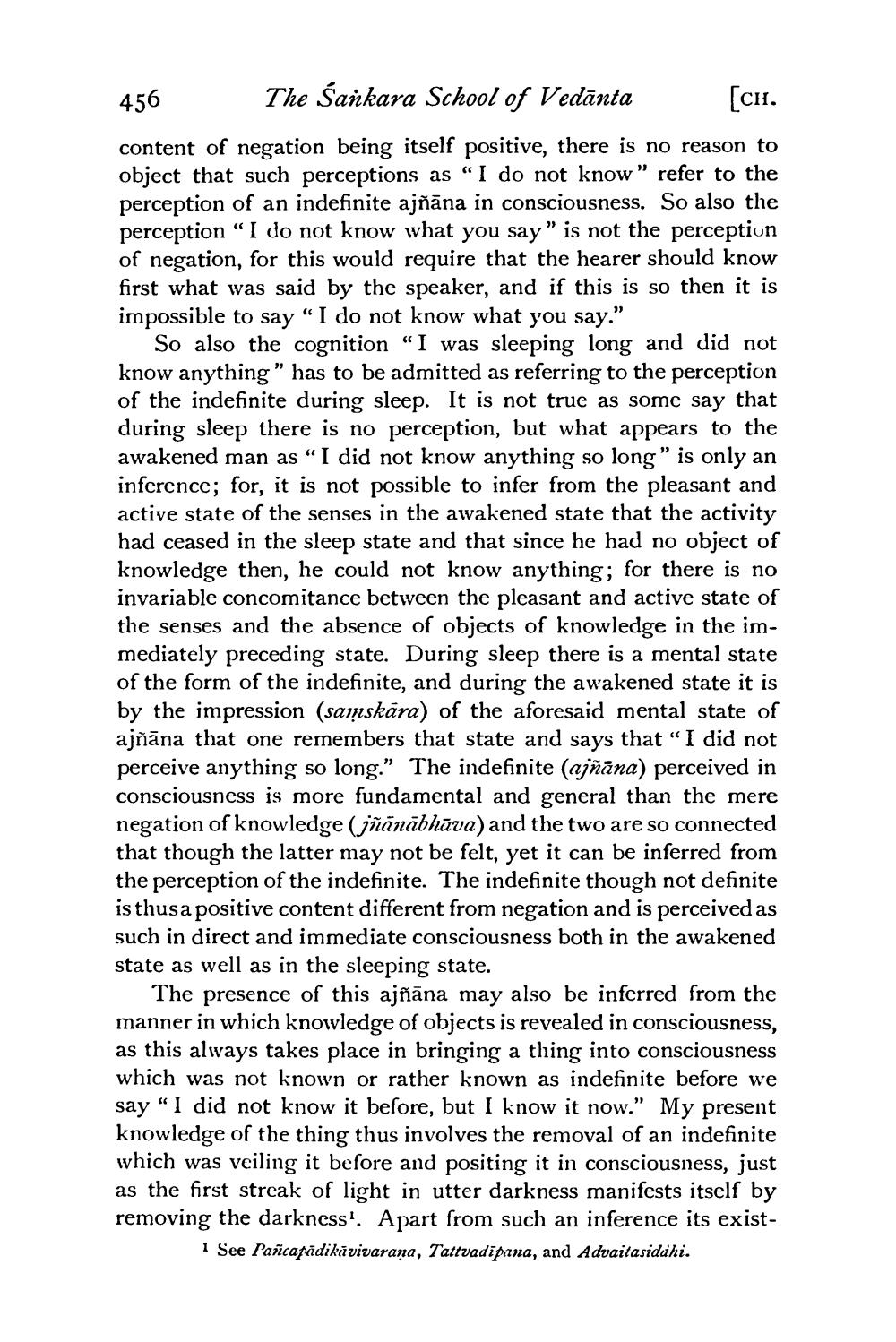________________
456
The Sankara School of Vedanta
[CH.
content of negation being itself positive, there is no reason to object that such perceptions as "I do not know" refer to the perception of an indefinite ajñāna in consciousness. So also the perception "I do not know what you say" is not the perception of negation, for this would require that the hearer should know first what was said by the speaker, and if this is so then it is impossible to say "I do not know what you say."
So also the cognition "I was sleeping long and did not know anything" has to be admitted as referring to the perception of the indefinite during sleep. It is not true as some say that during sleep there is no perception, but what appears to the awakened man as "I did not know anything so long" is only an inference; for, it is not possible to infer from the pleasant and active state of the senses in the awakened state that the activity had ceased in the sleep state and that since he had no object of knowledge then, he could not know anything; for there is no invariable concomitance between the pleasant and active state of the senses and the absence of objects of knowledge in the immediately preceding state. During sleep there is a mental state of the form of the indefinite, and during the awakened state it is by the impression (samskāra) of the aforesaid mental state of ajñāna that one remembers that state and says that "I did not perceive anything so long." The indefinite (ajñāna) perceived in consciousness is more fundamental and general than the mere negation of knowledge (jñānābhāva) and the two are so connected that though the latter may not be felt, yet it can be inferred from the perception of the indefinite. The indefinite though not definite is thus a positive content different from negation and is perceived as such in direct and immediate consciousness both in the awakened state as well as in the sleeping state.
The presence of this ajñāna may also be inferred from the manner in which knowledge of objects is revealed in consciousness, as this always takes place in bringing a thing into consciousness which was not known or rather known as indefinite before we say "I did not know it before, but I know it now." My present knowledge of the thing thus involves the removal of an indefinite which was veiling it before and positing it in consciousness, just as the first streak of light in utter darkness manifests itself by removing the darkness'. Apart from such an inference its exist1 See Pañcapādikāvivarana, Tattvadipana, and Advaitasiddhi.




